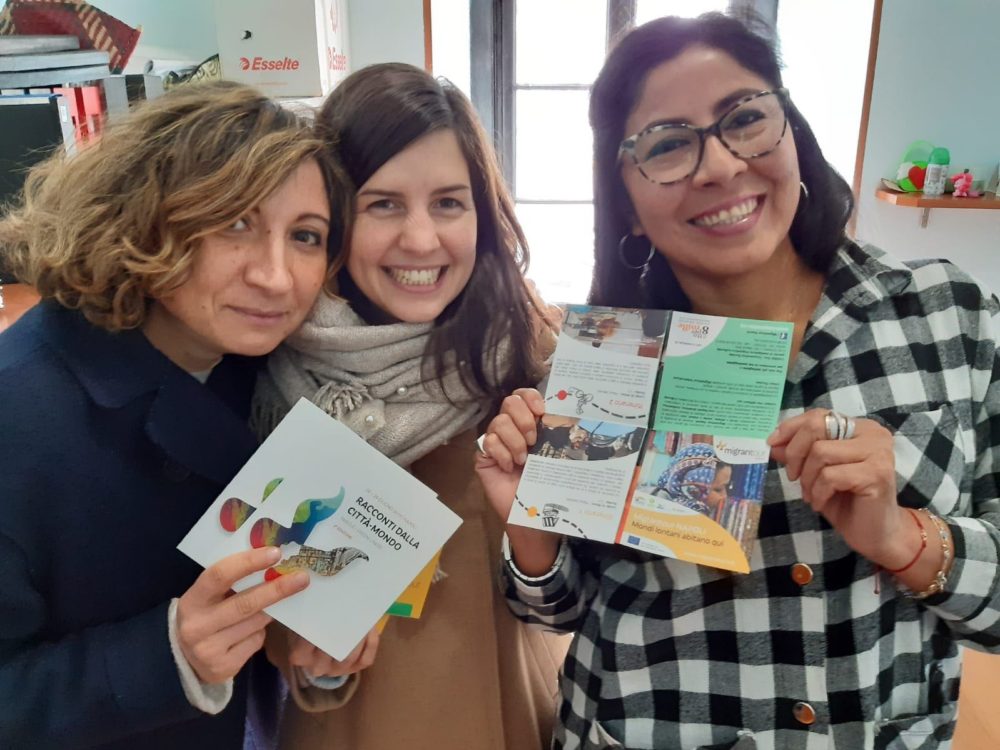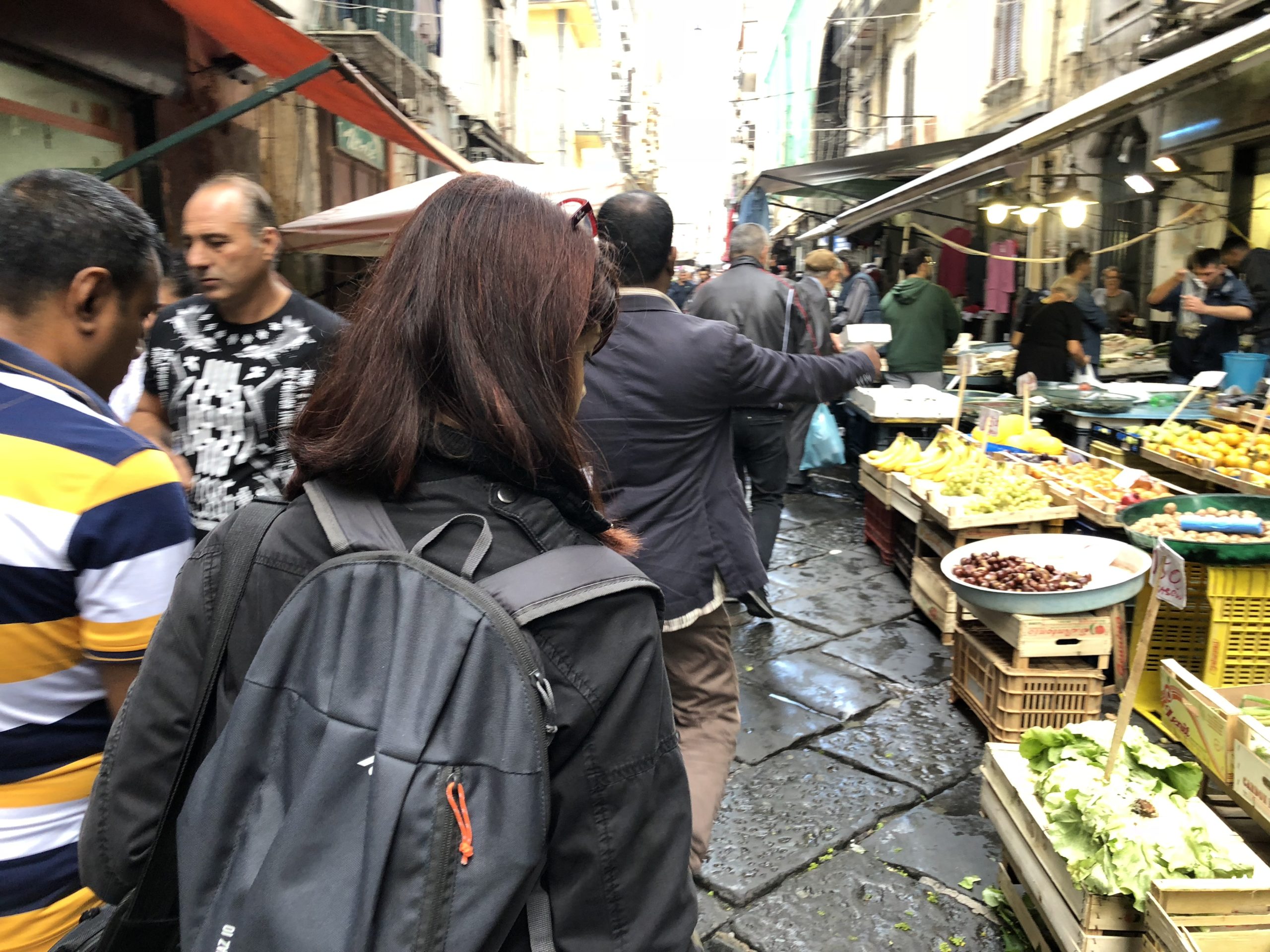After several months of pause, Migrantour, the intercultural walks to discover multiethnic Naples, started again on September 14. Migrantour is an initiative born in Turin that arrived in Naples in 2015 and provides guided tours of the city with intercultural guides of foreign origin.
Migrantour Naples provides 4 routes organized by Casba Social Cooperative, a Planeterra partner since 2018. In this interview, meet its President, Jomahe Solis, to learn more about Migrantour and the work done by Casba.

*This is an extract of the interview originally published in italian on the website of Impact Campania, a project which aims to promote the integration of foreign citizens in the region of Campania, Italy.
Hi Jomahe, can you tell us how the Migrantour initiative in Naples was born?
We officially started with the Migrantour Naples project in 2015 even if we did it informally in 2013. The Migrantour concept was born in Turin in 2010 thanks to Viaggi Solidali; we came into contact with them and proposed to bring it to Naples. We obtained their accreditation to be part of the network after verifying that most of the members of our Cooperative are foreigners. This is the idea, we are not tour guides, but intercultural guides.
In 2015 we obtained funding from the Waldensian Church and entered the official Migrantour circuit which provides 200 hours of training for the intercultural guides. Nowadays, Migrantour has become an international network because, two years ago, we participated in a European funded project called “New Roots”, which extended the network to several European cities.
What are the characteristics that distinguish Migrantour?
The Migrantour is not the usual city tour, because we are not tour guides, we are intercultural companions. We bring people to the discovery of popular neighbourhoods, to see the ferment of migrant communities. Casba Social Cooperative has been working with the integration of migrants for over twenty years and we know the communities and areas of the city very well. We like to call it “a visit to the world at zero kilometres”, since we go to a place and we can imagine being abroad, encountering colours, noises, smells and flavours of other cultures. This brings an extra sensitivity to the presence of migrants in our cities.
In some way can we say that Migrantour represents a counter-narrative of migration?
In recent years there has been a negative narrative, focused on boat landings and the phobia of the foreigner who comes to take everything. Contrary, we see other realities, such as the entrepreneur who works and makes others work, perhaps Neapolitans. This type of migration narrative is the message we want to spread through the Migrantour.

How many types of routes are there?
We currently have four routes: that of Piazza Garibaldi which is called “A thousand worlds at the station”; “In the belly of Naples” which starts from Piazza Mercato; then we have “All the faces of the exchange” which is in the area of the Courts, this path was created recently and intends to be a story about old and new slavery; finally, the last is “Next stop: Piazza Cavour” which represents a crossroads of worlds and cultures.
Now we are working on a new route, trying to establish a dialogue between different places of worship. After the lockdown, together with Viaggi Solidali, we tried to invent something new and decided to create a one-week tourist package, conceived by our Casba Cooperative which includes the historic center of Naples, as well as Pompeii, Procida and of course the Migrantour.
Who usually takes part in your tours?
To tell the truth, the public is very mixed, which is why we also try to personalize them with special stages and tastings of typical cuisine or drinks. For example, when we go to the market run by the Bengalis, we taste the mango juice and the delicious Sri Lankan biscuits created to accompany the tea, because having had the English domination they made this tradition theirs. On the other hand, when we travel with foreigners, we explain the tradition of “caffè sospeso” (leaving a coffee paid for someone that cannot afford it) and sfogliatella (typical Neapolitan pastry). However, the routes are mainly designed for Neapolitans and school children, since the idea is precisely that it is the local population who can realize with whom they share the city. It is a matter of open-mindedness that allows you to have a different look.
The Migrantour of Naples and that of Rome have attracted the interest of the international tour operator G-Adventures, who brings groups to take part in the tours. Often those arriving from abroad have a more open vision and already know things such as multi-ethnic markets, so for them we take the itinerary “In the belly of Naples”, which is more focused on interreligious exchange and Neapolitan habits. In this walk, we visit both the mosque and the Carmine church and we try to explain the link between the different religions. In that area, there is the Black Madonna as well, to which many Neapolitans are devoted.
Why is it important to know this multi-ethnic face of Naples?
It is important not to stop at the news that mass media transmit, both in terms of foreign communities and the city of Naples. We must go and see, get to know the positive things, things that later on we might be interested in. It is also a way to enrich your life, your culture and why not your table too! As an example, ginger, which is now so fashionable and is put all over the place, has always existed, here in Italy too. So how did this fashion come about? It was born from the knowledge of the other, the customs and habits of the other, it is always an enrichment. If during the walk you find something you like, maybe you come back, or if there is a shop where you used to pass and you didn’t even notice it, now you know it and maybe you go inside.
We must favour intercultural exchange because there is no fixed identity, we will understand that we can only get richer, becoming less vulnerable.


Post a comment